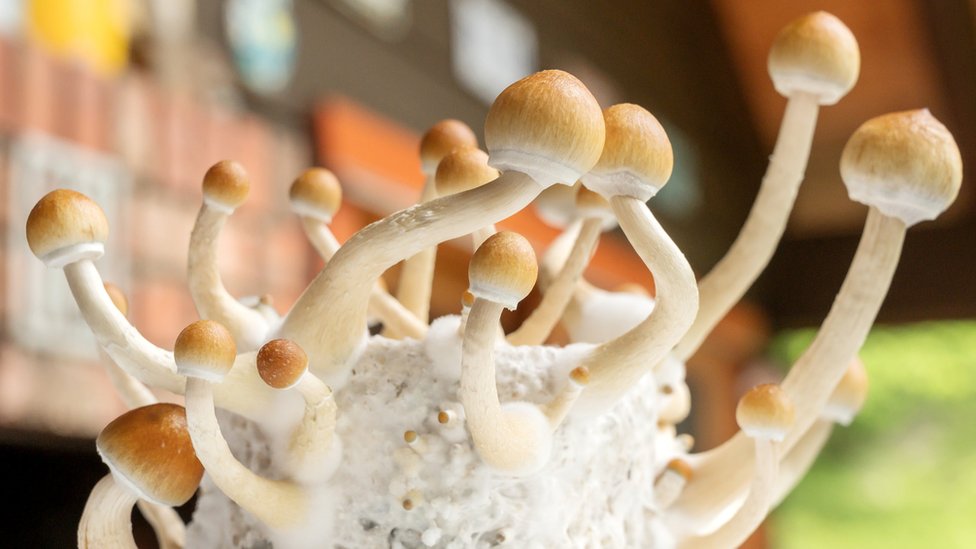Addiction remains one of the most challenging public health issues, with traditional treatment methods such as therapy and medication showing mixed results. Recently, researchers have been exploring the potential of psychedelics—specifically psilocybin (the active compound in magic mushrooms) and MDMA (commonly known as ecstasy)—as groundbreaking alternatives for addiction treatment. Early studies suggest these substances could help rewire the brain, reduce cravings, and address underlying trauma that fuels substance use disorders.
This article examines the latest research on psilocybin and MDMA, their effects on the brain, and their potential role in treating addiction.
The Science Behind Psychedelics and Addiction
1. How Psychedelics Affect the Brain
Both psilocybin and MDMA interact with serotonin receptors, influencing mood, perception, and emotional processing. Unlike traditional medications, psychedelics promote neuroplasticity, helping the brain create new connections that can break addiction patterns.
– Psilocybin: Stimulates the 5-HT2A receptor, leading to increased connectivity in brain networks related to emotion and self-reflection (Carhart-Harris et al., 2021).
– MDMA: Enhances serotonin, dopamine, and oxytocin release, reducing fear responses and making psychotherapy more effective (Mithoefer et al., 2019).
2. Why Traditional Addiction Treatments Fall Short
Current treatments, such as 12-step programs, behavioral therapy, and medication-assisted treatment (MAT), help many individuals, but relapse rates remain high. Psychedelics offer a different approach by addressing the root psychological causes of addiction rather than just managing symptoms.
Psilocybin-Assisted Therapy for Addiction
1. Research on Psilocybin and Substance Use Disorders
Recent studies show promising results in using psilocybin-assisted therapy for addiction recovery:
– A 2014 study published in The Journal of Psychopharmacology found that psilocybin helped 80% of participants reduce or quit smoking after six months (Johnson et al., 2014).
– Research from NYU Langone Health found that psilocybin therapy significantly reduced alcohol dependence, with 83% of participants reporting decreased alcohol consumption (Bogenschutz et al., 2022).
2. How Psilocybin Aids in Recovery
Psilocybin helps individuals overcome addiction by:
– Interrupting negative thought loops associated with cravings
– Enhancing emotional processing, making it easier to address trauma
– Promoting a sense of interconnectedness, reducing isolation often linked to addiction
MDMA and Its Role in Addiction Treatment
1. MDMA-Assisted Therapy for PTSD and Addiction
MDMA is currently being studied as a Breakthrough Therapy by the FDA for PTSD treatment. Since trauma is a major risk factor for addiction, researchers believe MDMA could also be effective in treating substance use disorders.
Key studies include:
– A 2021 clinical trial found that MDMA-assisted therapy reduced PTSD symptoms in 67% of participants, with improvements lasting over a year (Mitchell et al., 2021).
– Researchers at Johns Hopkins University are investigating MDMA’s ability to help individuals with opioid addiction by enhancing emotional resilience and reducing cravings.
2. How MDMA Helps in Addiction Recovery
MDMA’s effects on addiction include:
– Reducing fear and anxiety, making it easier for individuals to engage in therapy
– Strengthening social bonds, which are crucial for recovery support networks
– Enhancing introspection, allowing individuals to confront past trauma that fuels substance use
Challenges and Ethical Considerations
1. Legal and Regulatory Hurdles
Despite promising research, psychedelics remain Schedule I substances in the U.S., meaning they are classified as having no accepted medical use and a high potential for abuse. However, regulatory changes are underway:
– The FDA granted Breakthrough Therapy designation for MDMA-assisted therapy for PTSD.
– Cities like Denver, Oakland, and Washington D.C. have decriminalized psilocybin, signaling a shift in public perception.
2. Potential Risks and Side Effects
While psychedelics are generally considered safe when administered in controlled settings, risks include:
– Psychological distress (e.g., challenging emotional experiences during sessions)
– Increased heart rate and blood pressure
– Potential misuse if taken outside therapeutic settings
To mitigate these risks, experts emphasize the importance of clinical supervision, screening for pre-existing mental health conditions, and structured integration therapy after psychedelic experiences.
The Future of Psychedelic Therapy for Addiction
1. Ongoing and Upcoming Research
Several ongoing trials are investigating how psychedelics can be integrated into mainstream addiction treatment:
– Johns Hopkins University is conducting trials on psilocybin for opioid addiction.
– MAPS (Multidisciplinary Association for Psychedelic Studies) is funding studies MDMA-assisted therapy for alcohol and cocaine use disorders.
– Imperial College London is researching the effects of psilocybin on behavioral addiction, such as gambling and overeating.
2. Potential for FDA Approval
If Phase 3 trials continue to show positive results, experts predict that MDMA could receive FDA approval by 2024, followed by psilocybin in the coming years. This would allow for broader clinical use and insurance coverage for psychedelic-assisted therapy.
Conclusion
Psychedelics like psilocybin and MDMA are emerging as promising tools for addiction treatment, offering new hope for those struggling with substance use disorders. By addressing underlying trauma, enhancing self-awareness, and promoting emotional resilience, these compounds could revolutionize addiction therapy.
However, more research is needed to ensure safety, effectiveness, and ethical implementation. As public perception and regulatory policies shift, psychedelics may soon become a mainstream part of addiction recovery programs, providing an alternative to traditional treatments that have often fallen short.
References:
– Bogenschutz, M. P., Ross, S., Bhatt, S., et al. (2022). Psilocybin-assisted therapy for alcohol use disorder: A randomized clinical trial. JAMA Psychiatry.
– Carhart-Harris, R. L., Roseman, L., Haijen, E., et al. (2021). The therapeutic potential of psilocybin: Mechanisms and clinical applications. Neuropharmacology.
– Johnson, M. W., Garcia-Romeu, A., & Griffiths, R. R. (2014). Long-term effects of psilocybin-assisted therapy for smoking cessation. Journal of Psychopharmacology.
– Mithoefer, M. C., Grob, C. S., & Brewerton, T. D. (2019). MDMA-assisted therapy for PTSD and substance use disorders. Frontiers in Psychiatry.
– Mitchell, J. M., Bogenschutz, M., Lilienstein, A., et al. (2021). MDMA-assisted therapy for PTSD. Nature Medicine.
– National Institute on Drug Abuse (NIDA). (2021). Emerging treatments for addiction: Psychedelic-assisted therapy.

